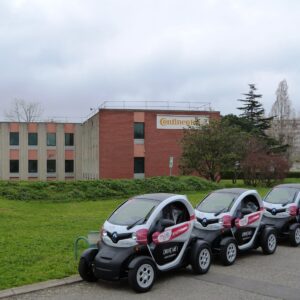In January, RCR Wireless News shared the Connected Car Industry landscape report and webinar. As a part of the effort the industry participants were asked for their predictions for the next two years for connected cars.
Everyone loves predictions; so let’s see how they’ve done in the first six months since the review occurred. Some of those interviewed for RCR’s feature report were very conservative while others really went out on a limb. The predictions are segmented into two categories below; the top 10 most likely to succeed (those with a reasonable chance of occurring) and the top 10 movers and shakers (those that are more controversial).
Most likely to succeed
- Integration of everything happens with the car connected to the home and new partnerships that cross industry to enable – AT&T has announced the connection of the connected car and the connected home.
- The market shifts away from having a cool new offer to focus on the customer experience – I haven’t seen any signs of this one yet.
- Startups are the organizations that drive innovation and more will appear to take the lead – More and more startups are entering the fray, but I would say they are still relegated to app-oriented services or niche markets at this point.
- The smart city and the smart car connect – Maybe not what you were thinking; but Inrix has announced a solution to use smart data from the connected car to help smart cities plan for advertising, retail activities, etc. A first step at least.
- More concern over the security of the connected car – We can’t ignore the hacking story mentioned in the second section below.
- The in-car experience starts to look more like the iPhone experience – It takes me somewhere I’ve never been able to go before and becomes more interesting to the end consumer, it’s happening slowly but surely. Head units are looking more like a giant smartphone with touch screens and icons that can be customized.
- More governments come into play that drive the deployment of V2I – not yet.
 New car sharing models emerge – More OEMs offer DriveNow type services and digital keys replace current car entry models – this is happening. One example announced in March is a partnership between Continental and D’Ieteren to enable digital keys for car-sharing models is already deployed in Monaco. Also on the car sharing front; Ford has car sharing available in Germany. Another addition to the likes of BMW and Mercedes on this topic.
New car sharing models emerge – More OEMs offer DriveNow type services and digital keys replace current car entry models – this is happening. One example announced in March is a partnership between Continental and D’Ieteren to enable digital keys for car-sharing models is already deployed in Monaco. Also on the car sharing front; Ford has car sharing available in Germany. Another addition to the likes of BMW and Mercedes on this topic.- The first OEM launches OTA programmable SIM as standard – The technology is available, but to date OEMs aren’t quite there yet with deployment.
- MNOs start offering connected car-oriented services packages with new monetization options, not just minutes or bandwidth – The first steps on this front also come from AT&T.
Movers and shakers
- First public hack of a connected car – The good news is that it was on purpose to show the possibilities and not a malicious activity. The bad news is that it happened. A Chrysler Jeep Cherokee was remotely hacked from 10 miles away and control of the vehicle was taken away from the driver while traveling on the highway.
- First OTA bug fix – Tesla did this in 2014, but to date it hasn’t happened with other OEMs.
- A single OEM leaps far ahead of the rest of the pack – still waiting.
- First OEM is blackmailed due to connected car security vulnerabilities – not that I’m aware of.
- Content can be transferred from your home to your car. Stop watching a movie in the house, the kids start at the same spot in the car as well as other similar services. – Not yet, but a good deal of discussion around this topic brewing.
- Connect to a neighboring car’s WiFi in traffic – not yet.
- First person to be killed by an autonomous car accident causes public fear of autonomous cars – There has not been a death, but injuries have occurred.
- U.S. mandates V2I – Nothing has been mandated, but the world is watching. It’s a regular topic of discussion that many regions are waiting on U.S. rulings to act. So this one remains open.
- China becomes the “pilot” country for autonomous driving – Not sure about the pilot country, but certainly a lot of activity here. Baidu is claiming it will launch an autonomous car by the end of 2015. Who are they testing with? BMW. If so, they might be the pilot after all.
- Pedestrian to bike to car connectivity is a reality – This one has started with Volvo as far as the bike to car connection. At CES in January, Volvo demonstrated the connected helmet to alert drivers of nearby bikes, and bikes to nearby vehicles that might be in their blind spot.
In total, I’d give points to about 13 of the 20 predictions, and believe the interviewees did a pretty good job for the short term. Maybe we need to go back to them now and get a new list for the next 18 months.
Like what you read? Follow me on twitter!
Claudia Bacco, Managing Director – EMEA for RCR Wireless News, has spent her entire career in telecom, IT and security. Having experience as an operator, software and hardware vendor and as a well-known industry analyst, she has many opinions on the market. She’ll be sharing those opinions along with ongoing trend analysis for RCR Wireless News.

